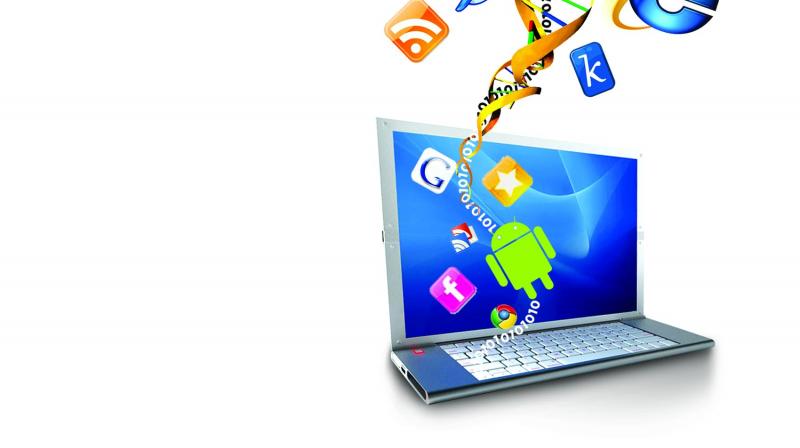How social media became people power

A year and two months after the wild fire swept through the world, the blaze that is #MeToo is still raging. Ripples of this historical movement started on social media and soon gathered pace in India where the high and mighty stood no chance against its colossal force. Social media has been instrumental in creating favourable conditions for the movement to grow at an unimaginable pace and bring it to the focus and attention of lawmakers, government, media and other organisations. It was something too glaring to be missed; the hashtag was reposted, retweeted and shared at a rate that was never seen before. Social networking platforms like Facebook and Twitter took on the roles of being the exclusive space for breaking news, and the world was closely watching. Social media gave power right back into the hands of the people, one of the most fascinating attributes of these multi faceted communication platforms. It made it possible for people from all over the world, cut across barriers and boundaries and express solidarity to the sentiment that became a global phenomenon in no time. Social media also exposed in a brutally honest way, the alarming power imbalances and many layers of patriarchy prevalent in our
society.
Suddenly, the less seen, less heard ones had a voice and a face, one that was synonymous with invincible strength and courage and that spoke the language of inspirational survival.
The Indian scenario
#MeToo had a timeless message that transcended cultures and nations, a hashtag so powerful because of its highly personal content that was simple, direct and truly empowering. Our nation witnessed many big names being called out and there were questions about the legal aspects and viability of these social media documented instances of harassment. As much as there were social and cultural implications to this, there were debates and discussions that followed, and there was this focus shift to the legalities, with attention falling on the formation of an Internal Complaints Committee (ICC) at workspaces, a judgment made by the Supreme Court. This made it compulsory for all workplaces to mandatorily have an ICC. In the fields of media and entertainment, we saw the repercussions hit hardest. We saw women journalists coming demanding more accountability and reliability from organisations when it comes to grievance redressal mechanisms. We also saw many lawmakers like Rujuta Shinde of the Bombay High Court offering legal help to survivors.
Voices become collective
Another intriguing instance of #MeToo happened down south, when the glitz and glamour of cinema shifted to expose the disturbing shades of unfortunate work situations women in films face every day. Organisations like Women in Cinema Collective (WCC) were at the forefront when it came to breaking the stereotypes and demanding all that was overdue for women in cinema. The organisation has been successful in initiating meaningful and productive public conversations on gender bias in cinema, misogyny in film scripts, lack of gender representation and grievance redressal systems in the film industry, disparity in pay scales, etc. In less than a year, the collective managed to bring about some significant changes and start an effective dialogue on many crucial issues that have been choking the industry for ages. We also were witness to how social platforms like Twitter became a burning space with renowned names like Chinmayi Sripada, being fearless in their pursuit to establish how sexual violence against women is a pervasive issue across all industries.
A catalyst for social change
Even at a time when the communication landscape is experiencing life changing evolution with numerous new platforms coming into being, it is intriguing to learn that something fundamental about communication hasn’t changed at all — stories still come first. It is imperative to understand that before any drastic change happens, change starts with stories and how effectively they are being communicated.
We can safely argue that the storytelling way of communication has been the most significant and the foundation on which the world of social media is built.
The trust and credibility one manages to create through social pages, in turn channels our empathetic responses.
This, set in the context of MeToo, is particularly true. It has made the netizens of today particularly aware of the socio-political and cultural changes and has equipped them with a platform where they can organise and implement social movements.
In the current context
Though there has been an influx of digital platforms over the years, the fundamental principles of communication seem to be most impacted and influenced by social media platforms. Social media has effectively managed to democratise communication bringing the power back to the hands of the people.
#MeToo isn’t clearly a passing trend or the end of it all, but just a sneak peek into the beginning of a new revolutionary era in the ever-exuberant communication scenario.
“Those who make us believe that anything’s possible and fire our imagination over the long haul, are often the ones who have survived the bleakest of circumstances,” writes Paul Rogat Loeb in his book — The Impossible Will Take a Little While: A Citizen’s Guide to Hope in a Time of Fear.
(The writer is a social media consultant)

